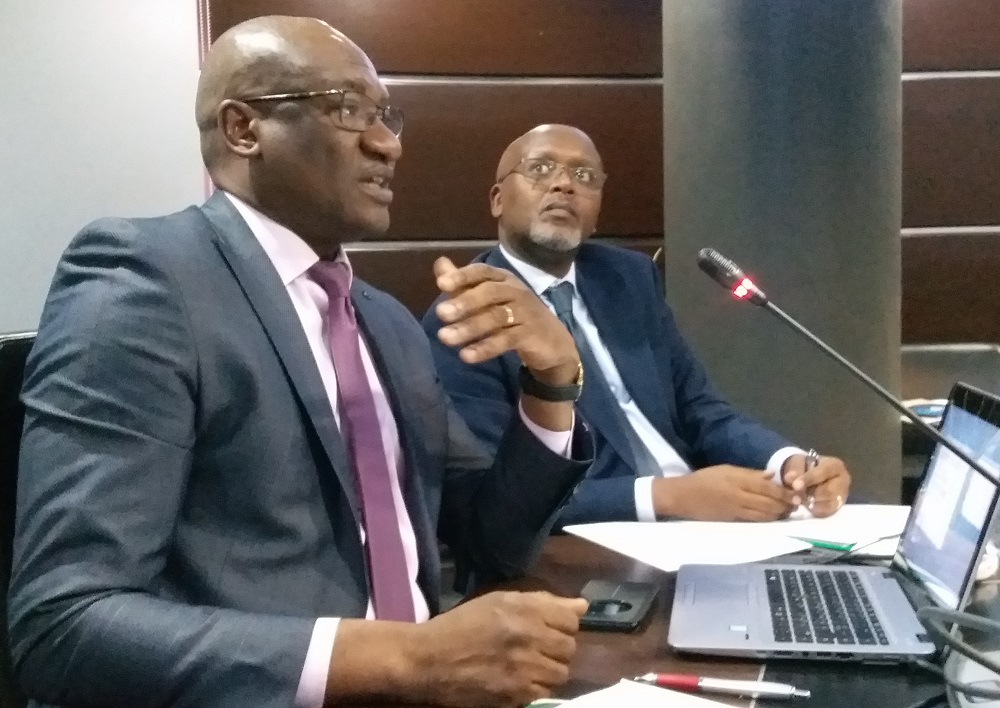
On 26 June 2019, around 30 staff members of the African Development Bank (AfDB or the Bank) discussed “Optimizing the Bank’s Program Based Operations (PBOs) Support as a Package” in a workshop at the Bank’s headquarters in Abidjan, Côte d’Ivoire. The event was the third in a series of workshops organized jointly by IDEV and the Bank's Governance & Public Financial Management Coordination Office.
Two preceding workshops in Pretoria and Nairobi, on the 21st and 28th of May respectively, were aimed at staff and management based in the Bank’s regional and country offices. Their aim was to sensitize staff on PBOs and the application of the Bank’s PBO policy as well as best practices. It follows from a recent independent evaluation of the AfDB’s PBOs.
PBOs, also known as budget support, are instruments that the AfDB uses to provide funds directly to a country’s treasury in support of the national budget. Additionally, PBOs are expected to support general economic and financial or sector-specific reforms in the country.
The evaluation of the Bank's PBOs revealed that they remain relevant and useful instruments for the AfDB and its clients, and their performance is broadly satisfactory. However, they were found to be challenging to design and manage effectively. The evaluation also found some shortcomings in the implementation of PBOs and that the Bank had insufficiently invested in its institutional infrastructure to obtain maximum value for money from PBOs.
An appeal to the Bank to complement PBOs with policy advice that is based on sound analytical work resounded across all the three workshops. “Not enough analytical rigor is linked to policy advice regarding PBOs and this is reflected in the quality of the policies”, was a remark by Kapil Kapoor, the Director-General of the Bank’s Southern Africa Regional Office, while opening the event in Pretoria. The country manager for Ethiopia underscored the same point: “Dialogue is underpinned by analytics, otherwise your dialogue will be shallow, and you won’t be able to assume the leadership that will enable you to influence policy”, he said at the workshop in Nairobi.
The importance of PBOs to the Bank was affirmed at all three workshops. In Abidjan, Herves Lohoues, the Lead Economist at the Bank’s Central African Regional Office spoke of the popularity of PBOs among the regional member countries. “In 2018 alone, the Bank granted PBOs worth about USD 336 million to countries in Central Africa. “PBOs”, he said, “are an important tool for the Bank in pushing development in the region, especially for policy dialogue with the countries”. Likewise, Marcelin Ndong Ntah, the Lead Economist at the Bank’s East Africa Regional Office, had said that when they were well designed, PBOs gave the Bank a unique entry point for policy dialogue with countries to support key sectoral reforms.
 A key concern raised at all 3 workshops was the poor coordination and teamwork around PBOs across the Bank. PBOs need to be conducted as the responsibility of all of the staff in the country office. The leading role of the Country Manager in the related policy dialogue cannot be over-emphasized. The country manager should be supported in the dialogue by a team of experts (governance specialist, country economist, sector experts, etc.) comprising of staff from the country office, the regional office, and HQ when the required expertise is not on hand at the country office.
A key concern raised at all 3 workshops was the poor coordination and teamwork around PBOs across the Bank. PBOs need to be conducted as the responsibility of all of the staff in the country office. The leading role of the Country Manager in the related policy dialogue cannot be over-emphasized. The country manager should be supported in the dialogue by a team of experts (governance specialist, country economist, sector experts, etc.) comprising of staff from the country office, the regional office, and HQ when the required expertise is not on hand at the country office.
Participants found the workshops engaging and useful. “The workshop has helped me understand the complications we had in preparing a PBO in the past. At the time we had not adequately assessed the country’s eligibility criteria,” one participant at the workshop in Pretoria observed.

